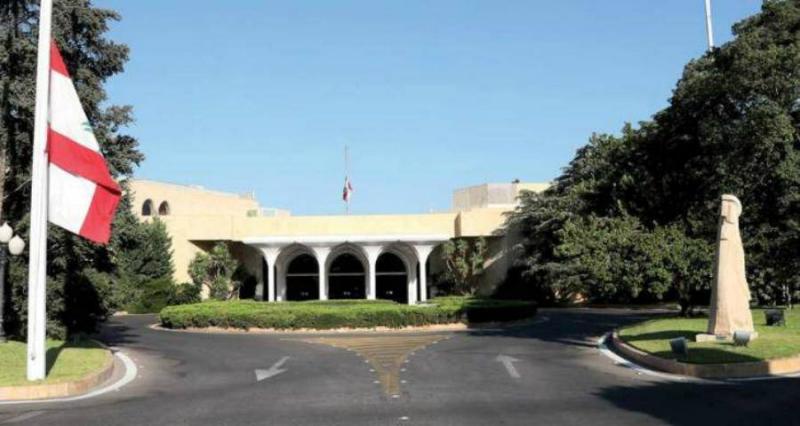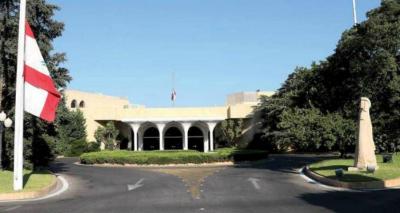It appears that the presidential vacancy in Lebanon will continue for many months, amid a stalemate in the internal situation and a lack of solutions for complex regional issues that adversely affect Lebanon. The increasing uncertainty is exacerbated by the imminent collapse of the Iranian nuclear negotiations, which signals the potential for the internationalization of the Lebanese crisis. There are concerns that Lebanon could be drawn into a conference following a significant security incident that is challenging to manage. This was expressed by member of the "Democratic Gathering" bloc, MP Marwan Hamadeh, who analyzed the Lebanese crisis from both internal and external perspectives, with the presidential vacancy being the central issue, and the inability of parliamentary blocs to resolve it.
Just as the ten parliamentary sessions held to elect a new president were futile, the activation of political communications and meetings is unlikely to yield results. In an interview with Asharq Al-Awsat, Hamadeh stated that "the conditions for electing a president have not matured; neither internally nor externally. The unusual meetings that have begun to emerge in recent days, such as the visit of (the head of the Free Patriotic Movement) Gibran Bassil to (former MP and head of the Progressive Socialist Party) Walid Jumblatt, will not lead to a solution. Therefore, we see that each side is operating outside the general atmosphere, which indicates that the complexities of the regional situation remain unchanged."
While awaiting the resolution of many contentious issues, including Hezbollah's relationship with Lebanese society or the Free Patriotic Movement's relationship with other political components, internal movements are meaningless, according to MP Marwan Hamadeh, who emphasized that "the presidential principles paper promoted by Gibran Bassil is nothing but wishes for the continuation of the Aounist era and for retaining the powers that he has taken from the constitutional, judicial, and military institutions." He argued that "putting forward several prospective names does not mean that the presidential entitlement is advancing."
He added: "There are pressing questions that need answers: What is the position of the candidates on the defense plan that prevents Lebanon from falling back into a civil war? Can the forthcoming president convince (Hezbollah) to engage in legitimate institutions through political, parliamentary, and social work? Is (Hezbollah) serious about stopping its encroachment on the state and consequently on all other Lebanese components?" He believed that "it is impossible as long as the party's decision is in Tehran and as long as it is not convinced of returning to Lebanon," stressing that "if (Hezbollah) does not change its course, it will continue to use its power by bringing in a president of its choice, imposing a Prime Minister, forming a government that suits it, and securing a blocking third in it, leading to the paralysis of institutions and the obstruction of justice."
Hamadeh views reliance on a regional and international movement, led by France, which has manifested through efforts made by President Emmanuel Macron with Lebanese leaders and countries concerned with the Lebanese file, as exaggerated. He affirmed that "Macron cannot resolve the presidential vacancy crisis through wishes or by threatening sanctions (against political and party figures obstructing the process)." He stated: "If the major powers want to impose a solution in Lebanon, they can do so by sending decisive messages to Iran and forcing it to change its behavior."
When asked if these messages imply a military threat, Hamadeh dismissed the option, highlighting "the possibility of sending strong and impactful messages through increasing Iran's isolation, enhancing sanctions against it, and compelling it to cease its aggression toward its surroundings," considering that "Iran has been waging war on neighboring countries for years, just as Russia is waging war on Ukraine."
Regarding whether Patriarch Bechara Boutros al-Rahi’s call for an international conference represents a solution to the Lebanese crisis, a member of the "Democratic Gathering" stated, "The circumstances for an international conference do not seem available at present, but the fear is that this conference could be imposed following a significant security event that is difficult to control, and we may head towards it unwillingly." He considered "the Patriarch is right that Lebanon needs a conference that translates into international consensus because our country is currently facing a real existential threat."
Information has circulated about meetings held by Hezbollah officials with Christian figures to arrange relationships with them and with parties opposing its policies, especially after the deterioration of its relationship with the Free Patriotic Movement. In response, Hamadeh said, "Hezbollah's problem is not just with Christians, but with the majority of Lebanese society." He continued: "Even most Shiites are dissatisfied with the party's policies and are fed up with its control over the state’s joints and the country's exposure to chaos, especially border smuggling operations, especially Captagon smuggling."
He insisted that "there is no sovereignty without reforms, and without a singular decision in the hands of states and their legitimate institutions." As for the impossibility of separating the Lebanese crisis from intractable regional issues, Hamadeh pointed out that "trust is almost lost in the Iranian nuclear negotiations, and there is also a lack of trust in the possibility of establishing an Iranian partnership with regional countries given its growing presence through military arms like (Hezbollah) in Lebanon, the Popular Mobilization Forces in Iraq, the Syrian regime in Damascus, and the Houthis in Yemen—four deadly tools. Ironically, Iran does not exert any pressure on Israel but rather on Arab countries and seeks to destabilize their security." He noted that "the initial indicators from the Amman conference yielded no results, and the Iraqi initiative between Iran and Egypt is nothing but wishes, while the Saudi-Iranian dialogue has regressed from its previous state." Hamadeh commented on the significant confusion surrounding Turkish-Iranian-Russian relations amid the Ukraine war and the U.S. commitment to the Ukrainian file, indicating that there will be no presidency in Lebanon for a long time, and it may become hostage to all these files.




